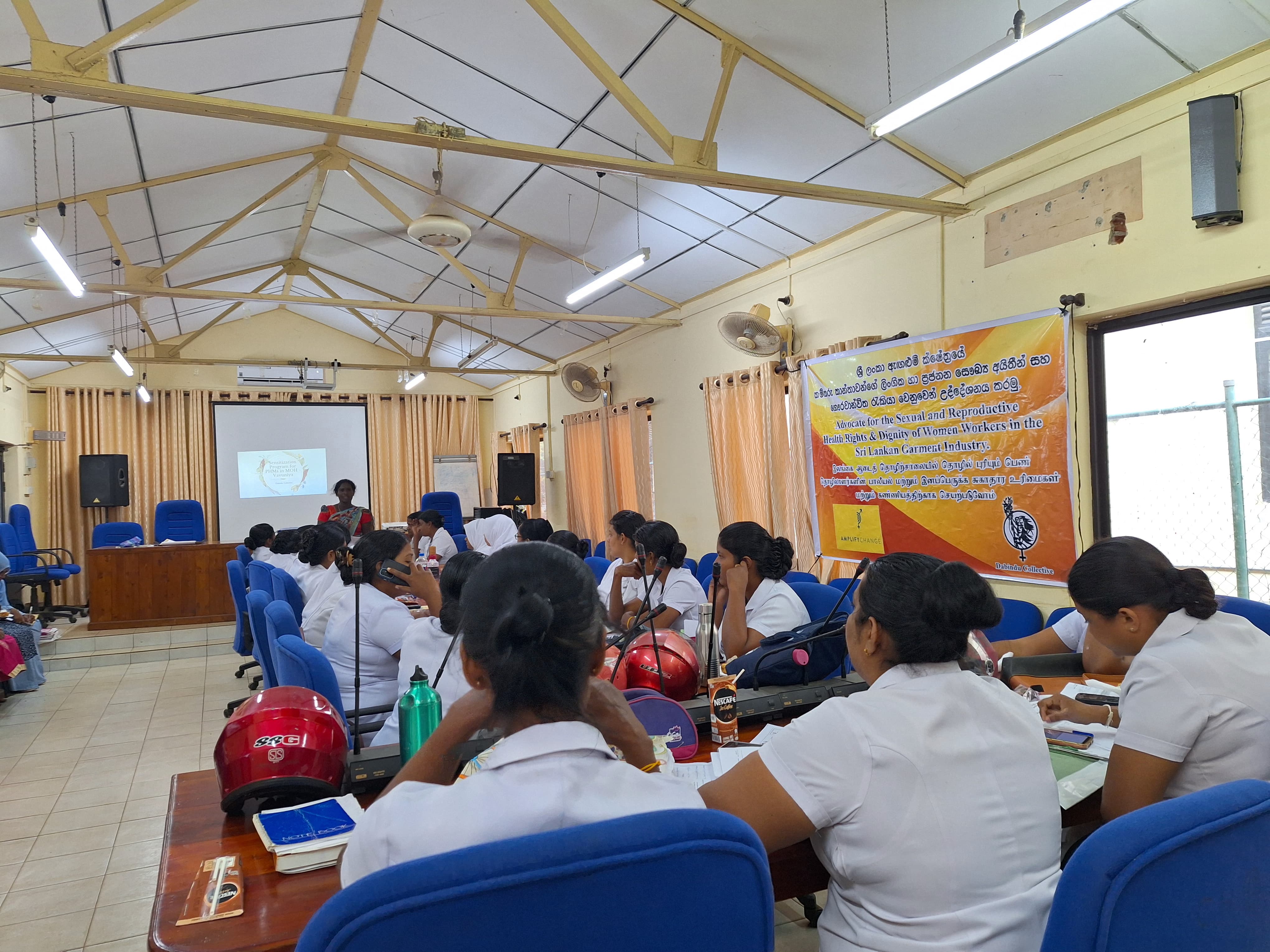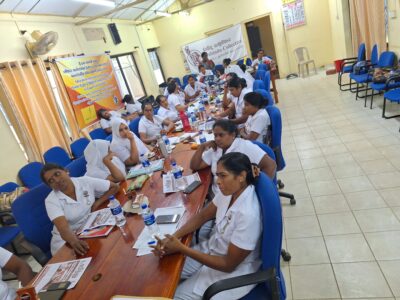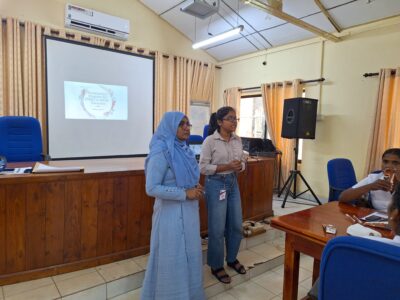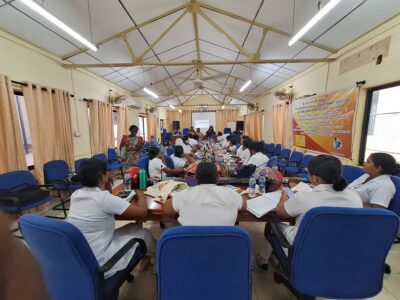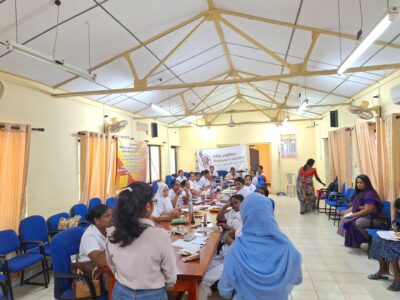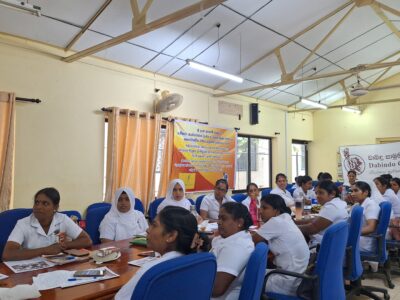The Dabindu Collective Sri Lanka conducted a sensitization workshop for 22 PHMs and 2 doctors in Vavuniya MOH in Sri Lanka on 02nd of August 2024. Sensitization programs conducted sessions with the objectives of Sensitizing the public health midwives on critical sexual reproductive health rights violations and gender-based violence issues faced by the woman workers and LGBTIQA+ community in Free Trade Zones and other manufacturing areas in Sri Lanka ( Kilinochchi and Vavuniya ); Encouraging public health midwives to work as active partners on responding SRHR violations to internally migrant marginalized vulnerable woman worker’s community in [MOH area]; Building linkage with service providers to increase access to comprehensive services for woman workers and LGBTIQA+ community in Free Trade Zones and other manufacturing areas in Sri Lanka; and Promoting alliances and partnership between health sector and civil society partners. Service providers in Health sector play a crucial role in providing services to the community. During the program Ms. Chamila Thushari, Executive Director – Dabindu Collective conduct a session on promoting and protection SRHR of marginalized woman workers in FTZs and other manufacturing areas including issues sharing and access to services. The program identified the gaps in services and solutions to eliminate the gaps on targeting the woman workers who are working in Vavuniya Apparel Sector. Main issues identified by PHMs are teenage pregnancies among unmarried girls, Abuse of children of working women, Lack of calcium and anemia tablets, Reduced birth weights, decline in clinic visits, Children’s health declines after mothers return to work, and young women facing skin problems from fairness creams. Moreover, during the program, Yasara Weerathunga – Project Officer and Rameeza Khan – Program Manager draw attention to menstrual products & taxes and period poverty. The translation conducted by Patrisshiya Joseph – Field Coordinator. Main action taken after the meeting are monitor food hygiene during factory visits; and check the medication distributed to workers. Finally, service providers found the session informative and they committed to addressing the issues identified during factory visits.
